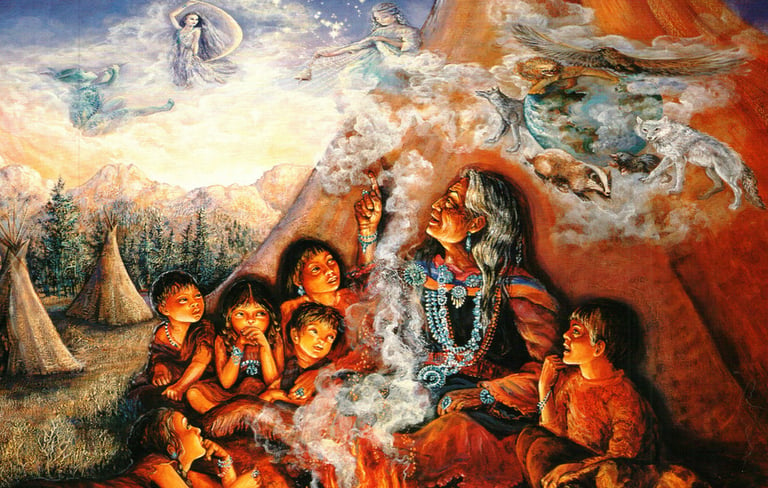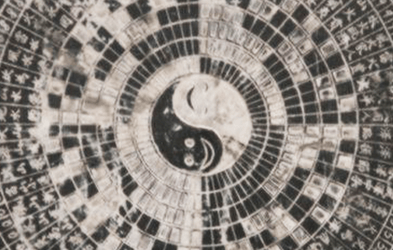Exploring Cultures
Investigating the evolution of Chinese, Russian, and Western cultures to gain insight into the diverse perspectives of thought
The concepts of “culture” and “civilization” are among the vaguest notions and often substitute each other, deriving from a Western worldview that pretends to be universal since globalization. Throughout history, these terms have evolved, encompassing a wide range of meanings and interpretations that vary not only across different cultures but also within specific communities. As we delve into these intricate ideas, we must ask ourselves: Can it serve as a common ground for dialog, or will it conceal critical inconsistency between different social groups and invoke a conflict, potentially perishing humanity’s achievements in the process? This is a reason for careful consideration of variables and constants in human behavior. Moreover, it is essential to recognize that the interplay between individual identity and collective culture shapes societal dynamics, making the understanding of these terms even more complex. Realizing the commonalities and differences between these core values will not only facilitate global cooperation but also enhance mutual respect, understanding, and reduce conflicts, fostering a more harmonious coexistence among diverse peoples and nations.
Kanaev Ilya A.
The Historical Development of Russia’s Traditional Values.
Patria, 2, 93-115.


This study provides a theoretical justification for the necessity of maintaining a system of traditional values for the existence and sustainable development of the state, drawing on data from anthropology, cognitive science, and philosophy. It argues that fundamental human needs can be understood as values of life and honor, which are subsequently shaped within culture, thereby defining the distinct worldview and value system of a given community. By applying these findings and synthesizing them with established historical facts of Russia, the study elucidates the evolutionary nature of the Russian people's collective identity. Russia’s close interaction with both Western and Eastern cultures has enabled it to synthesize a unique value system—one that integrates patriotism and devotion to the homeland with compassion and humanity toward all people. The capacity to retain such diverse moral principles within both individual and collective consciousness has been made possible by the continuous pursuit of new solutions and constructive labor. In turn, this creative capacity facilitates the overcoming of limitations, thereby fostering values of creation and willpower. The clarification of these values and the necessity of their consistent embodiment in individual and societal life represent the study’s most significant theoretical contribution. Its practical application in state planning and education would contribute to the establishment of a stable system for shaping both collective and individual identity while countering the spread of destructive ideologies.
Kanaev Ilya A., Dryaeva Ella D.
Inheritance between Generations, Magic and Institutions of Power in Early China.
Voprosy Filosofii. 2023, 3, 132-144.


It is foreseen that the emergence of culture has been a key factor in human evolutionary success. However, the richness of cultural forms and significant differences between national cultures complicates the demarcation of cultural practices and natural behavior. This leads to a blurring of the concept of culture and makes possible speculations on the concept of human nature under the slogans of returning to the natural state of human beings and canceling artificial restrictions. Therefore, a clear understanding of the evolutionary continuity of the human species along with the demarcation of human consciousness and self-identity from their evolutionary predecessors is needed. The authors of this article continue the interdisciplinary study of consciousness and combine it with data from anthropology, history, and philosophy of the Chinese culture, which has been able to maintain uninterrupted continuity for more than three millennia. The most ancient magical practices of the Shang dynasty demonstrate a direct connection with some forms of prehistoric behavior, in which one should look for the foundations of the culture. Merging magic and state institutions under the leadership of the Shang clan caused the transformation of a mystical worldview into a system of more abstract philosophical concepts. The consequent development of this system in classical canons of the Zhou dynasty became the basis for the formation of the philosophy of the Changes, which reflects the most fundamental principles of the Chinese culture. This research allows us to consider the historical development of culture on a concrete example and question the essence and future of human development.
Kanaev Ilya A.
The origination of the Book of Changes.
Voprosy Filosofii, 2020, 7, 176-190.


The article continues the author’s research of the Chinese classical philosophy from the position of the modern epistemology and explores the emergence of the Book of Changes. The study starts from the historical myth about the fate of the Xia and Shang dynasties and the innovations introduced by the founders of the Zhou dynasty to the moral principles of cognition methods. The first task was to limit the arbitrariness of the ruler and coordinate their actions with the will of the people and Heaven. On the base of the epistemology’s recent achievements, the author illuminates the fundamental inefficiency of abstract moral instructions, which cannot be even noticed by the one whose will is not coherent with them. Hence, the predetermination of the cognition way is the only way to guide human behavior. The author puts forward the hypothesis that the origination of the system of Changes was a response to this particular challenge. The analysis of the oracle bones that was the official cognition practice during the Shang dynasty reveals its general mode as a “subject-object” interaction and thus confirms the given historical myth. On the base of the recent archaeological finds and comparative analysis of the cognition practices, the author presents arguments in favor of the fundamental role of hexagrams in the system of Changes and their direct origin from the previous method of the oracle bones divination. In the course of the historical development, the cognition practices had come to establish equality between the subject of cognition and the surrounding reality. The system of the Changes provides a particular method of cognition that prescribes human being to look for the actions, which are coherent with the world they are living in. Such an interaction follows the “subject-subject” mode and opens the possibility for a human being to become a real agent of action and change the world through their labor.
地址:
山东大学
儒学高等研究院
1801室
联系:
电话 | 微信:+86-13902409939
邮件:kanaev@qq.com
